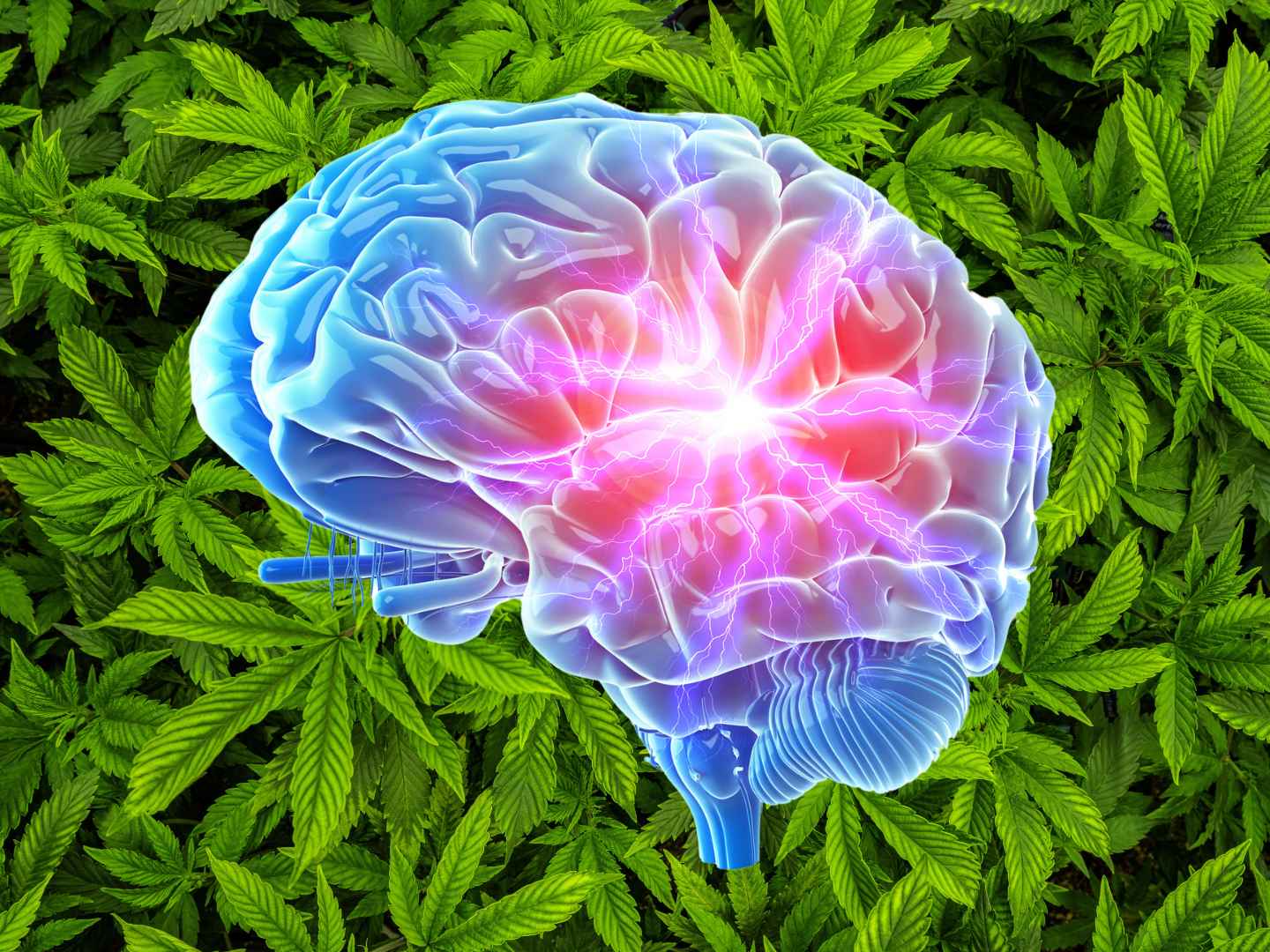How Does Cannabis Affect Your Brain?

If you're someone who prioritizes wellness and is curious about how cannabis might enhance your health regimen, understanding its impact on your brain is crucial. There's a significant amount of research exploring this very topic, and in this article, we'll break down how cannabis interacts with the brain, its short-term and long-term effects, and the role of cannabidiol (CBD).
What Are Cannabis’ Interactions with the Brain?
To understand how cannabis affects your brain, you first need to grasp the basics of the endocannabinoid system (ECS). The ECS is a complex network of endocannabinoids (cannabinoids produced by the body), cannabinoid receptors, and proteins that synthesize and degrade these endocannabinoids. Its primary role is to maintain homeostasis in the body by regulating various functions such as sleep, appetite, pain, and mood.
There are two main types of cannabinoid receptors in the ECS: CB1 and CB2. CB1 receptors are primarily found in the central nervous system (your brain and spinal cord) and regulate neurotransmitter release, including dopamine, GABA, and glutamate. Cannabis contains over 100 different phytocannabinoids (plant-based cannabinoids) that can mimic the body's own endocannabinoids and interact with the ECS in similar ways.
Tetrahydrocannabinol (THC) is the primary psychoactive phytocannabinoid responsible for the euphoric "high" associated with cannabis consumption. It primarily activates CB1 receptors, which is the main way cannabis affects your brain. CBD, on the other hand, is non-intoxicating and interacts with different receptor sites, which leads to different effects.
Short-Term Effects of Cannabis on Brain Function
Acute cannabis exposure—whether through smoking, vaping, or edibles—is associated with a range of effects driven by THC. A 2021 review article highlights that cannabis intoxication results in neurocognitive changes, including reduced attention, impaired motor function, decreased impulse control, memory issues, and altered consciousness. These effects are dose-dependent and can vary based on genetic factors, personality, age, and sex.
Interestingly, chronic cannabis users often develop tolerance, leading to less pronounced acute effects over time. This tolerance can complicate comparisons between studies of cannabis-naive individuals and long-term users, making it challenging to draw clear conclusions about how cannabis affects the brain.
Chronic Cannabis Use and Brain Health
Long-term cannabis use might lead to residual cognitive effects similar to those observed with acute exposure. Starting cannabis use at an earlier age seems to increase the likelihood of experiencing these long-term effects. According to a 2020 research report from the National Institutes of Health, chronic cannabis use can result in altered connectivity and reduced volume in brain regions involved in executive functions like memory, learning, and impulse control. However, these findings are not always consistently replicated across studies.
A 2022 review noted that chronic cannabis users might experience growing impairments in memory and attention, becoming more noticeable with continued use. The potential neurodegenerative properties of THC further complicate these findings, suggesting that long-term cannabis use can have nuanced effects on brain health.
Cannabis Use Disorder (CUD)
Despite the misconception that cannabis is not addictive, it can indeed lead to dependence, known as Cannabis Use Disorder (CUD). This condition affects approximately 10% of the 193 million cannabis users worldwide. Individuals with CUD may exhibit decreased CB1 receptor density and function, impacting how the central nervous system and ECS process rewards.
CBD: Potential Benefits for Brain Health
Most concerns related to cannabis use are associated with THC. In contrast, CBD has garnered attention for its potential therapeutic benefits for a variety of neurological, psychological, and psychiatric conditions. According to a 2023 review article, CBD shows promise in treating chronic non-cancer pain, neurodegenerative disorders like Alzheimer's and Parkinson's diseases, depression (including symptoms associated with chronic THC use), anxiety, psychosis, and addictive behaviors.
While there is debate about whether combining CBD and THC can mitigate the negative effects of THC, some users report success with this approach. CBD's non-intoxicating nature makes it a versatile option, although its low oral bioavailability poses challenges. Researchers are exploring alternative consumption methods, such as intranasal and inhalation, to enhance CBD delivery to the brain.
Making Informed Choices
Understanding how cannabis affects your brain is essential for making informed decisions about its use. While THC and CBD interact with the brain in different ways, each has its own set of effects and potential benefits. If you're considering incorporating cannabis into your wellness regimen, consult with healthcare professionals to tailor a plan that meets your needs and ensures your brain health remains a top priority. At CannaLnx we partner with the most informed and dedicated medical professionals in the industry. Be sure to learn about and connect with the Holistic Caring Green Nurses by clicking Nurses under the Learn tab in the header.
Please note: You are not currently logged in. Only members can contribute comments. If you would like to contribute click the button below.
